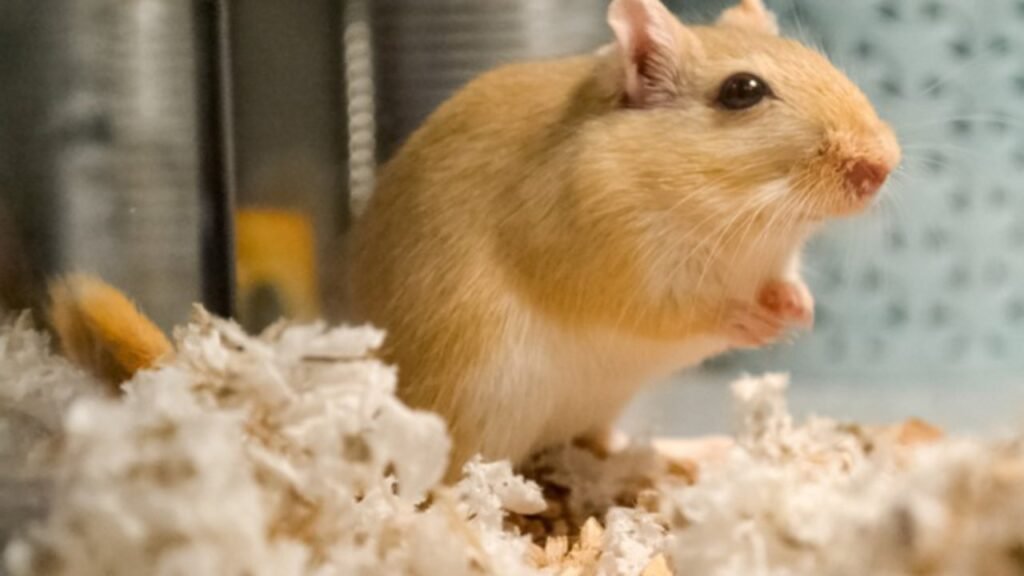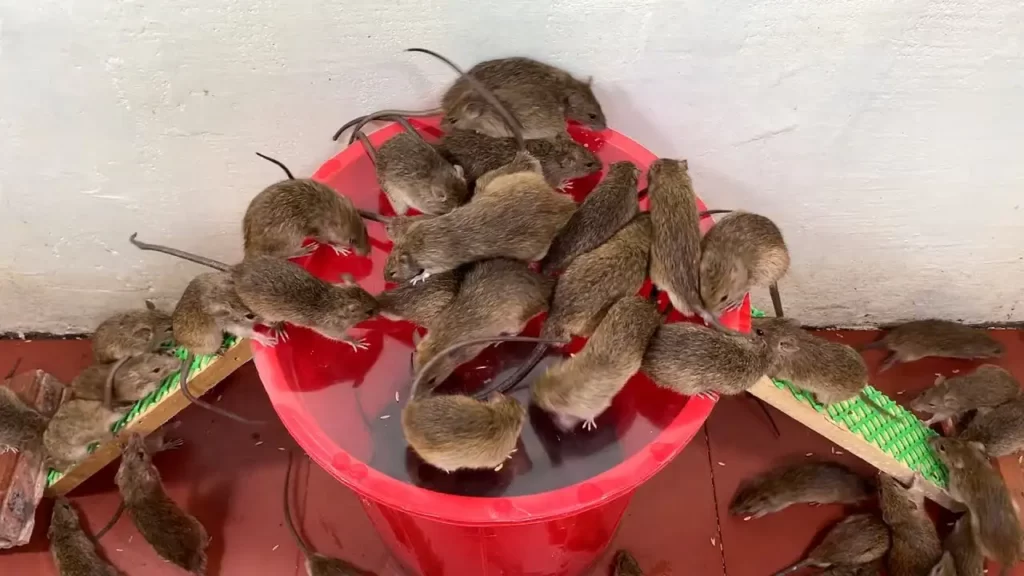Welcome to a comprehensive guide on safeguarding your apartment from relentless rodent invasions. Rodents, such as mice and rats, are persistent intruders that pose health risks and property damage. This article, offered by Complete Bed Bug Exterminating, delves into vital insights into rodent behavior, providing practical solutions to deter infestations. Understanding signs of their presence and implementing preventive measures—such as sealing entry points and maintaining cleanliness—is crucial. Additionally, it covers natural deterrents and traps, offering humane yet effective methods. Knowing when to enlist professional pest control ensures a swift resolution. Join us on this journey to create a rodent-free haven.
Understanding rodent behavior is crucial in fortifying your apartment against potential infestations. Apartments often encounter common rodents like mice, rats, and occasionally squirrels or chipmunks. These creatures possess adaptable traits, thriving in various environments due to their resourcefulness and agility. Their nocturnal nature and adeptness at hiding make them elusive, multiplying rapidly if left unchecked.
Rodents are drawn to apartments for several reasons. Factors such as warmth, shelter, and the promise of food sources serve as irresistible attractions. Crumbs, open food containers, and easily accessible trash become a buffet for these creatures. Additionally, unchecked gaps, holes, or poorly sealed entry points provide easy access, inviting these pests into your living space.
Understanding their behavior patterns aids in implementing effective prevention strategies. Rodents are excellent climbers and can squeeze through surprisingly small openings. By identifying and sealing potential entry points, you can significantly reduce the risk of an infestation. Moreover, maintaining cleanliness, storing food in airtight containers, and regular waste disposal deter them by eliminating readily available food sources.
By comprehending the habits and tendencies of these rodents, you gain an upper hand in safeguarding your apartment against potential invasions. Stay vigilant and proactive in addressing these factors to create an environment inhospitable to these unwanted guests.

Recognizing signs of a potential rodent infestation in your apartment is pivotal in curbing their presence before it escalates into a major issue. Physical evidence of rodent presence includes telltale signs like droppings, gnaw marks on furniture or food packaging, and chewed wires or insulation. Furthermore, discovering nests made from shredded materials, such as paper or fabric, serves as a clear indicator of their residency.
Indications of a potential rodent infestation are often subtle but crucial to catch early. Unexplained scratching noises in walls or ceilings, especially during the night when rodents are active, could signify their presence. Sightings of rodents or their swift movements, even during daylight hours, indicate a sizable infestation that needs immediate attention.
The importance of early detection cannot be overstated. Timely identification allows for swift intervention, preventing the escalation of the infestation. Rodents breed rapidly, and what starts as a minor issue can swiftly grow into a serious problem if left unaddressed. Furthermore, these creatures pose health risks through the spread of diseases, contaminating food, and causing structural damage to your apartment.
Therefore, being vigilant and recognizing these signs promptly is key to thwarting a potential rodent invasion. Early detection empowers you to take proactive measures, safeguarding your apartment and ensuring a hygienic, secure living environment for you and your household.
Rodent prevention in apartments requires a multi-faceted approach, encompassing proactive actions to fortify your living space against potential entry and attractiveness to these pests. Implementing these preventive measures significantly reduces the risk of a rodent infestation.
Securing your apartment demands a vigilant eye for potential entryways favored by rodents. Hunt down and seal any gaps, cracks, or holes found in walls, floors, and ceilings with sturdy materials like steel wool or caulk. These seemingly insignificant openings serve as welcome mats for rodents. Additionally, installing door sweeps beneath doors and fitting window screens tightly reinforces your defenses. These measures are not only effective deterrents but also a proactive strategy, ensuring your living space remains impenetrable against the relentless persistence of these unwelcome guests.
Maintaining a pristine environment within your apartment is a formidable defense against rodent infestations. Consistent cleaning routines, coupled with diligent decluttering, eliminate hiding spots and remove enticing food sources that attract these pests. Beyond cleaning, storing all food items in tightly sealed containers serves as an effective blockade, restricting rodents’ access to readily available sustenance. This practice denies them the opportunity to thrive, reducing the appeal of your apartment as a potential habitat. Embracing these cleanliness protocols transforms your living space into an uninviting environment for rodents, discouraging their intrusion and safeguarding your home.
Timely maintenance stands as a bulwark against rodent infiltration. Swiftly addressing any leaks or moisture-related concerns denies rodents access to coveted water sources, deterring their attraction to your dwelling. Rigorous inspections of your apartment, encompassing thorough checks of roofs and gutters, fortify your defenses. By identifying and promptly remedying any vulnerabilities, you proactively eliminate potential entry points, shoring up the fortress of your living space against invasive rodents. This proactive approach in maintenance is pivotal, ensuring your apartment remains an unwelcoming territory for these pests, preserving the sanctity and safety of your home environment.
Employing natural deterrents and traps offers a humane and efficient strategy to discourage rodents from infiltrating your living space without resorting to harmful chemicals or methods.

Harnessing nature’s scents becomes a potent tool in repelling rodents from your living space. Cultivating herbs like peppermint, eucalyptus, or lavender not only beautifies your surroundings but also emits fragrances that deter rodents. Likewise, employing solutions of vinegar or ammonia strategically in areas susceptible to rodent entry—such as near entry points or potential hiding spots—creates an unwelcoming olfactory landscape for these pests. The strong odors act as natural barriers, disrupting their navigation and deterring their interest in establishing residency within your home, contributing to a rodent-free environment without resorting to harsh chemicals.
Utilizing humane traps presents an ethical and effective approach to manage rodent intrusions. Live-catch traps offer a non-lethal method, allowing for the safe capture of rodents without harm, enabling their release back into the wild. Snap traps, when correctly positioned, swiftly capture rodents, ensuring a humane kill. Understanding the nuances of trap placement and usage is crucial. Placing traps along rodent pathways or near entry points maximizes their effectiveness. Additionally, checking and resetting traps promptly minimizes distress to captured animals. Employing these traps ethically ensures a humane approach to addressing rodent issues while maintaining the safety and well-being of both your home and the captured creatures.
Implementing natural deterrents and traps offers a balanced approach, providing eco-friendly alternatives that effectively discourage rodents while prioritizing their humane treatment.
Knowing when to enlist professional assistance for a rodent infestation is crucial to effectively manage the situation and safeguard your home.
Continuous signs of rodent activity despite thorough DIY measures indicate a resilient infestation that requires specialized intervention. Empty traps or ongoing rodent sightings signify an unmanaged situation that could escalate swiftly. Persistently evasive rodents often navigate around DIY deterrents or traps, highlighting the need for professional expertise. Expert pest control teams possess the knowledge to assess the severity of the infestation accurately. They employ targeted strategies and advanced techniques, ensuring a comprehensive approach to eradicate the infestation. Timely professional assistance becomes crucial to regain control, preventing further escalation and safeguarding your home effectively from persistent rodent invasions.
Professional pest control services stand equipped with specialized knowledge, employing advanced techniques and potent treatments vital for combatting severe rodent infestations. Highly trained technicians possess the expertise to conduct comprehensive assessments, accurately identifying entry points and determining the extent of the infestation. Utilizing their experience, these experts implement tailored solutions efficiently, employing methods that are beyond the scope of typical DIY approaches. Their nuanced understanding of rodent behavior allows for the application of strategic measures, ensuring a more effective and systematic eradication process, thereby restoring a rodent-free environment and securing your home from further pest intrusion.
When selecting pest control services, conducting thorough research is paramount. Look for firms with a credible history verified through recommendations and reviews. Ensure the chosen service employs licensed professionals well-versed in safe and effective methodologies. Prioritize providers that emphasize eco-friendly practices, showcasing a commitment to minimizing environmental impact. Opting for services offering ongoing maintenance plans signifies a proactive approach to prevent future infestations. By scrutinizing these factors, you ensure not only the eradication of current infestations but also a sustainable, long-term solution, safeguarding your home while aligning with environmentally conscious practices.
By recognizing when DIY methods fall short and acknowledging the value of professional expertise, you ensure a swift and comprehensive resolution to rodent issues. Selecting a reputable pest control service equips you with the necessary support and expertise to reclaim your space from persistent rodent invasions.
In conclusion, safeguarding your apartment from rodent infestations requires vigilance and proactive measures. By understanding rodent behavior, recognizing signs of infestation, and implementing preventive strategies like sealing entry points and maintaining cleanliness, you fortify your defense. Natural repellents and humane traps offer eco-friendly solutions. Recognizing when to seek professional help is vital for severe infestations. Acting promptly, whether through DIY efforts or professional assistance, ensures a rodent-free environment. Embrace these practices to protect your home, fostering a safe and healthy living space for you and your household.
What is the best way to prevent rodent infestation?
The best ways to prevent rodent infestation include sealing entry points, maintaining cleanliness, storing food in sealed containers, and conducting regular inspections and maintenance of your property.
What causes rodent infestation?
Rodent infestations are often caused by factors like easily accessible food sources, shelter, warmth, and unsealed entry points in homes or buildings.
What are the problems with rodent infestation?
Rodent infestations pose various problems including health risks from disease transmission, property damage through gnawing on wires and structures, contamination of food, and potential financial burdens due to repairs and eradication costs. Additionally, they can cause stress and discomfort for residents dealing with the infestation.
Which smell do rats hate?
Rats tend to dislike strong scents like peppermint, eucalyptus, and ammonia.
What is the best bait for rodent control?
Peanut butter, cheese, seeds, and dried fruits are highly effective baits for rodents. Peanut butter’s strong scent and sticky texture make it a favorite, while cheese entices with its pungent odor. Seeds and dried fruits also serve as enticing bait due to their fragrance and attractiveness to rodents’ dietary preferences.